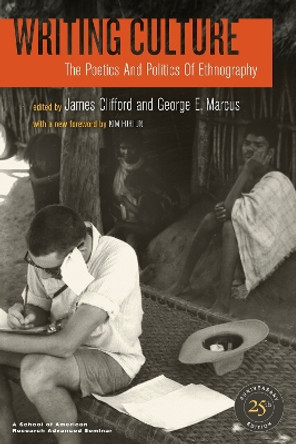Description
The Predicament of Culture is a critical ethnography of the West in its changing relations with other societies. Analyzing cultural practices such as anthropology, travel writing, collecting, and museum displays of tribal art, James Clifford shows authoritative accounts of other ways of life to be contingent fictions, now actively contested in post-colonial contexts. His critique raises questions of global significance: Who has the authority to speak for any group's identity and authenticity? What are the essential elements and boundaries of a culture? How do self and "the other" clash in the encounters of ethnography, travel, and modern interethnic relations?
In chapters devoted to the history of anthropology, Clifford discusses the work of Malinowski, Mead, Griaule, Levi-Strauss, Turner, Geertz, and other influential scholars. He also explores the affinity of ethnography with avant-garde art and writing, recovering a subversive, self-reflexive cultural criticism. The surrealists' encounters with Paris or New York, the work of Georges Bataille and Michel Leiris in the College de Sociologie, and the hybrid constructions of recent tribal artists offer provocative ethnographic examples that challenge familiar notions of difference and identity. In an emerging global modernity, the exotic is unexpectedly nearby, the familiar strangely distanced.
Clifford is original and very nearly unique. He is one of the few persons who connects history, literature, and anthropology. He's had an enormous impact because he provides a new perspective on the study of culture that would almost certainly never have been generated from within anthropology itself. -- Clifford Geertz
About the Author
James Clifford is Professor Emeritus in the History of Consciousness Department at the University of California, Santa Cruz.
Reviews
The Predicament of Culture is a work of sustained brilliance, packed with simply wonderful gifts for the reader. The several chapters on French anthropology and ethnographic surrealism are fascinating, and somehow as urgent as the ones on collecting or on the relentless intertranslating of cultural demands, or as the theme that we must rethink this entire dimension of human existence. It is also an extremely wise book. Since wisdom and brilliance rarely go together, it is plain that James Clifford is himself one of our cultural treasures. -- Arthur C. Danto * New York Times Book Review *
With an intellectual modesty that belies his sweeping global perspective, Clifford focuses on who has the authority to speak for any group's identity and authenticity. As he traces the development of twentieth-century anthropology, Clifford locates affinities between anthropology and avant-garde art, making this book one of the most readable introductions to contemporary cultural criticism. -- Mary Warner Marien * Utne Reader *
Clifford's reflections are salutory. They are not self-serving, allowing Clifford entry by a backdoor into a community which often threatens the exclusivity of a private club. By breaking with narrow professional definitions of anthropology, Clifford broadens its vision. Anthropology again becomes the exploration of the grounds of humanity in its original, general, and philosophically fundamental sense. -- Bruce Kapferer * Critique of Anthropology *
Clifford is original and very nearly unique. He is one of the few persons who connects history, literature, and anthropology. He's had an enormous impact because he provides a new perspective on the study of culture that would almost certainly never have been generated from within anthropology itself. -- Clifford Geertz
Book Information
ISBN 9780674698437
Author James Clifford
Format Paperback
Page Count 398
Imprint Harvard University Press
Publisher Harvard University Press
Weight(grams) 540g








